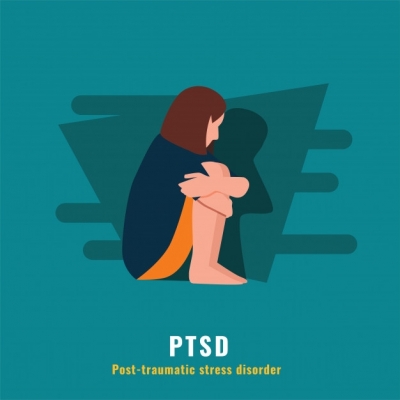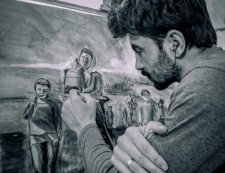A Study of Psychological Problem in Yazidi Children and Adolescents

The experience of war and violence increases the risk for psychological distress and the development of psychiatric disorders among people, especially children. It is an enormous challenge and a complex situation for refugee children and families to escape from their home country after being engaged in such a terrible war as a fight with Islamic State of Iraq and Syria (ISIS) and to adopt the norms of the new society in which they seek shelter. The available literature shows consistently increased levels of psychological morbidity among refugee children, especially post-traumatic stress disorder, depression, and anxiety disorders. A review of 22 studies on refugee children revealed substantial variation in the definitions used and measurements of children’s problems and reported levels of post-traumatic stress disorder, ranging from 19% to 54%. Depression is one of the most common mental health outcomes of exposure to war-related traumatic stressors in refugee children.
Depression in children as well as adults, in its most severe cases, can lead to suicide. Anxiety disorders, like depression, are among the most prevalent psychiatric disorders in refugee children. Anxiety in children often translates to poor mental health in adults. Some identifiable groups are at higher psychological risk than the general public: for example, migrants and refugees; unaccompanied minors; former child soldiers; victims of violence; abused women; the neglected elderly; and minority children, where children of religious and ethnic minorities are the most vulnerable in wars with religious roots, such as the crimes of ISIS against the Yazidis.
Writers - Seyedeh Behnaz Hosseini and Pegah A.M. Seidi
Tags: #yazidisinfo #newsyazidi #aboutyazidi #yezidigenocide
A Study of Psychological Problem in Yazidi Children and Adolescents

The experience of war and violence increases the risk for psychological distress and the development of psychiatric disorders among people, especially children. It is an enormous challenge and a complex situation for refugee children and families to escape from their home country after being engaged in such a terrible war as a fight with Islamic State of Iraq and Syria (ISIS) and to adopt the norms of the new society in which they seek shelter. The available literature shows consistently increased levels of psychological morbidity among refugee children, especially post-traumatic stress disorder, depression, and anxiety disorders. A review of 22 studies on refugee children revealed substantial variation in the definitions used and measurements of children’s problems and reported levels of post-traumatic stress disorder, ranging from 19% to 54%. Depression is one of the most common mental health outcomes of exposure to war-related traumatic stressors in refugee children.
Depression in children as well as adults, in its most severe cases, can lead to suicide. Anxiety disorders, like depression, are among the most prevalent psychiatric disorders in refugee children. Anxiety in children often translates to poor mental health in adults. Some identifiable groups are at higher psychological risk than the general public: for example, migrants and refugees; unaccompanied minors; former child soldiers; victims of violence; abused women; the neglected elderly; and minority children, where children of religious and ethnic minorities are the most vulnerable in wars with religious roots, such as the crimes of ISIS against the Yazidis.
Writers - Seyedeh Behnaz Hosseini and Pegah A.M. Seidi
Tags: #yazidisinfo #newsyazidi #aboutyazidi #yezidigenocide


























